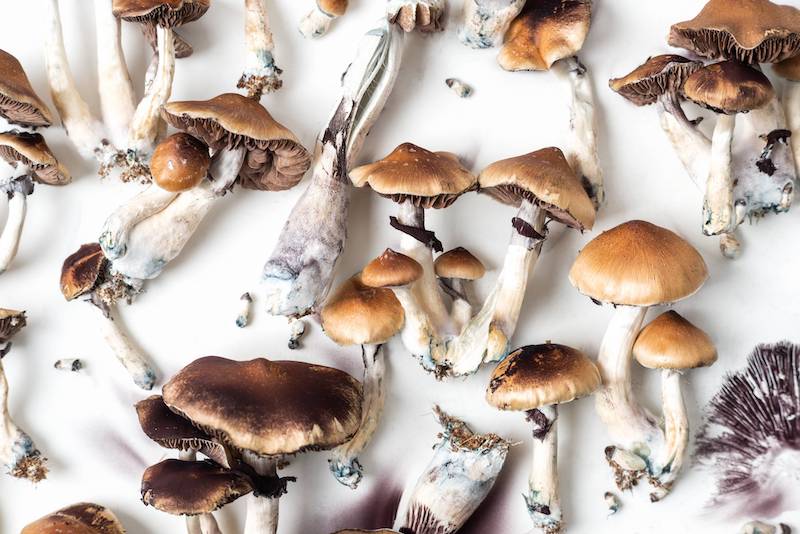Can Mushrooms Cure Hearing Loss?

While the theory that mushrooms can cure hearing loss is intriguing, further studies are needed to prove whether or not this theory holds true. A mushroom looks a lot like an ear. It is rich in Vitamin D and tryptophan, which is the building block of serotonin, the mood-regulating chemical.
Vitamins C, E, and D prevent hearing loss
Mushrooms are rich in Vitamin C, E, and D, which prevent hearing loss by protecting the inner ear from damage. These antioxidants also help build strong bones. While you can get this vitamin from sunlight, mushrooms are an excellent way to obtain it in your diet. Mushrooms also contain omega-3 fatty acids, which reduce ear inflammation and protect the cardiovascular system.
Vitamin C and E are two essential vitamins that can protect against hearing loss by as much as 80%. Both of these vitamins act as antioxidants, protecting cells from free radicals and fighting damage to the hair cells inside the cochlea. Vitamin C also strengthens the immune system and keeps infections at bay. Vitamin E is important for promoting healthy blood circulation and a healthy inner ear.
Magnesium reduces tinnitus
Magnesium is a key nutrient for the human body, and its supplementation has been shown to reduce tinnitus and improve hearing. It helps protect the nerves in the inner ear, and is a potent glutamate inhibitor. The neurotransmitter glutamate is released when sound waves strike the hair cells in the inner ear, and is thought to be the primary cause of tinnitus. However, there are no specific studies demonstrating that magnesium can cure tinnitus, and magnesium is not the answer for every case.
The intake of magnesium can significantly reduce tinnitus symptoms. It can also prevent hearing loss in people exposed to high levels of noise. However, it must be taken in the right ratio for maximum benefit. Magnesium and other minerals must be taken in the proper ratio in order to maintain a balanced chemistry and promote optimal health.
Wood Ear mushrooms contain adenosine
Wood Ear mushrooms are an excellent source of antioxidants and micronutrients. They are also a powerful antimicrobial. In fact, a recent in vitro study in the International Journal of Medicinal Mushrooms showed that wood ear mushrooms significantly inhibited the growth of Staphylococcus aureus and Escherichia coli, two common bacteria that can cause infections in humans.
Wood Ear mushrooms are also rich in polyphenols, a type of molecule that inhibits platelet aggregation and improves blood clotting. In addition, the mushroom contains polysaccharides that may inhibit coagulation and thrombosis. Further, wood ear mushrooms are rich in antioxidants and can significantly inhibit lipid peroxidation and oxidative damage. This may help explain their potential therapeutic effects.
Green foods help prevent hearing loss
Eating green vegetables is one of the best ways to protect your hearing. It helps your body function well and contains vitamin D, which is important for bone formation. This vitamin can also prevent age-related hearing loss. Sunlight is the best source of vitamin D, but you can also get it from mushrooms, microalgae, and lichens.
Green vegetables can prevent hearing loss because they contain plenty of folate, folic acid, potassium, and zinc. These nutrients help the immune system and protect your ears from age-related hearing loss. You can also get these nutrients from fish, such as salmon, which is rich in omega-3 fatty acids. Broccoli is another good source of folate, vitamin C, and magnesium.
Lion's mane mushroom extract regenerates brain cells
Studies have shown that Lion's Mane mushroom extract boosts the production of brain cells and nerve growth factors, which are necessary for healthy brain functioning. It is also known for enhancing the immune system and suppressing tumor growth. It also increases mental alertness and reduces depression.
In a clinical trial, mice were given an injection of the amyloid b (25-35) peptide on days seven and fourteen, and then were fed on a Lion's Mane diet for 23 days. The researchers found that Lion's Mane prevented visual recognition memory loss and promoted neuron regrowth after injury. The extract also restored the ability of rats that had lost their gluteal nerve to walk. However, a good quality extract is essential to get the desired results.
